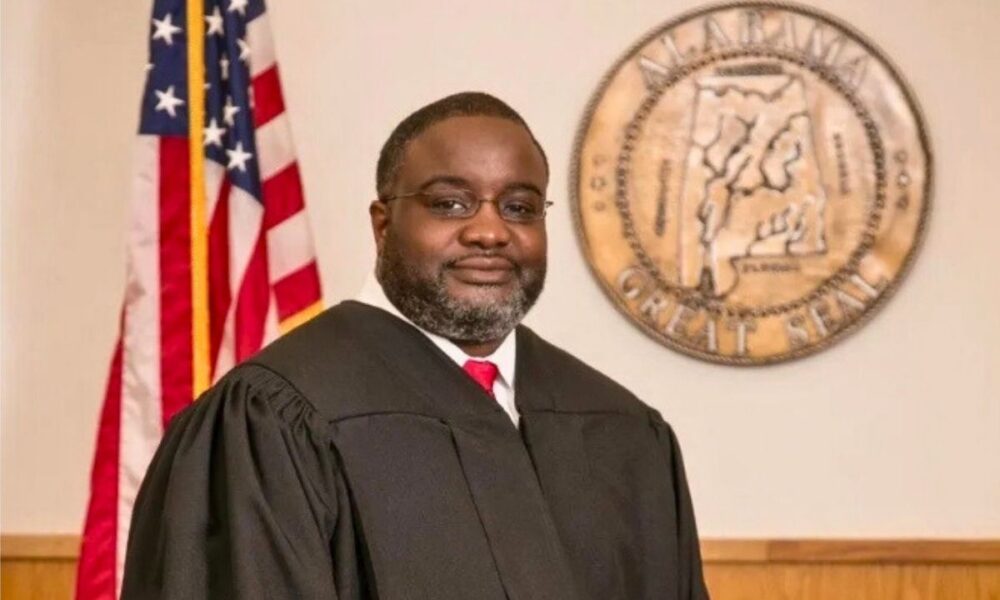President Donald Trump has nominated Alabama Supreme Court Justice Bill Lewis to the federal bench, a move that comes as speculation grows about potential future vacancies on the U.S. Supreme Court.
Lewis has been nominated to serve as a federal district court judge for the Middle District of Alabama, based in Montgomery. His nomination is one of three Trump put forward for federal judgeships in the state, all subject to Senate confirmation.
Trump announced Lewis’ nomination on Truth Social:
“I am pleased to nominate Bill Lewis to serve as Judge on the United States District Court for the Middle District of Alabama. As a Justice on the Alabama Supreme Court, Judge on the Alabama Court of Civil Appeals, State Court Trial Judge, and Assistant District Attorney, Bill has proven his dedication to the Rule of Law throughout his entire career. He is a courageous Patriot, who will ensure Law and Order, and always put our Constitution, FIRST. Congratulations Bill!”
Alabama’s Republican U.S. senators voiced strong support. “The White House knocked it out of the park with these Alabama nominees,” Sen. Tommy Tuberville said in a statement, while Sen. Katie Britt called Lewis and the other nominees “committed to restoring law and order” and upholding the Constitution.
Lewis’ rise through Alabama’s judiciary has been swift.
He served as an Elmore County circuit judge from 2016 to early 2024, joined the Alabama Court of Civil Appeals in February 2024, and was appointed to the state’s high Court in May 2025. Now, just months later, he could move to the federal judiciary, if confirmed.
The rapid promotion has caught attention in Washington, where court watchers are already discussing the possibility of Trump naming a successor to Justice Clarence Thomas during his second term.
Thomas, 77, is the oldest current justice and recently surpassed former Justice William J Brennan to become the seventh-longest-serving justice in history. He has given no public indication of plans to retire, and if he aims to become the longest-serving justice, he would need to remain until just before the 2028 Presidential election.
Historically, certain seats on the Supreme Court have been viewed as informally “reserved” for specific constituencies, a pattern seen when Thomas replaced Thurgood Marshall, the first Black justice, in 1991. While that precedent has softened with the 2022 appointment of Justice Ketanji Brown Jackson, some legal analysts say a Thomas retirement could still spark political and symbolic considerations in the choice of his successor.
Trump’s track record includes promoting relatively young judges to the nation’s highest Court.
Justice Amy Coney Barrett, for example, was 48 when she was confirmed in 2020 after serving just three years on the Seventh Circuit Court of Appeals. His first two Supreme Court appointments, Neil Gorsuch and Brett Kavanaugh, were also in their late 40s or early 50s at the time of their confirmations and had extensive federal judicial experience. Lewis is currently in his mid-late 40s.
For now, Lewis’ name has not circulated widely among analysts as a likely Supreme Court pick. His nomination could be aimed simply at filling a federal trial court vacancy, especially as other aging justices, such as Samuel Alito and Sonia Sotomayor, could open different opportunities for Trump to shape the Court.
Still, Lewis’ background may appeal to the President’s judicial preferences. He is a member of the Federalist Society, has worked as both a prosecutor and a defense attorney, and has been certified to practice law in three states. He has tried thousands of cases in state and federal courts and served in multiple community leadership roles.
Lewis has served as Chairman of the Elmore County Republican Executive Committee and the Alabama Republican Executive Committee, according to his biography.
Trump’s nomination now heads to the Senate, where Britt sits on the Judiciary Committee. If confirmed, Lewis would hold a lifetime appointment and a potential stepping stone to higher judicial office should the opportunity arise.


